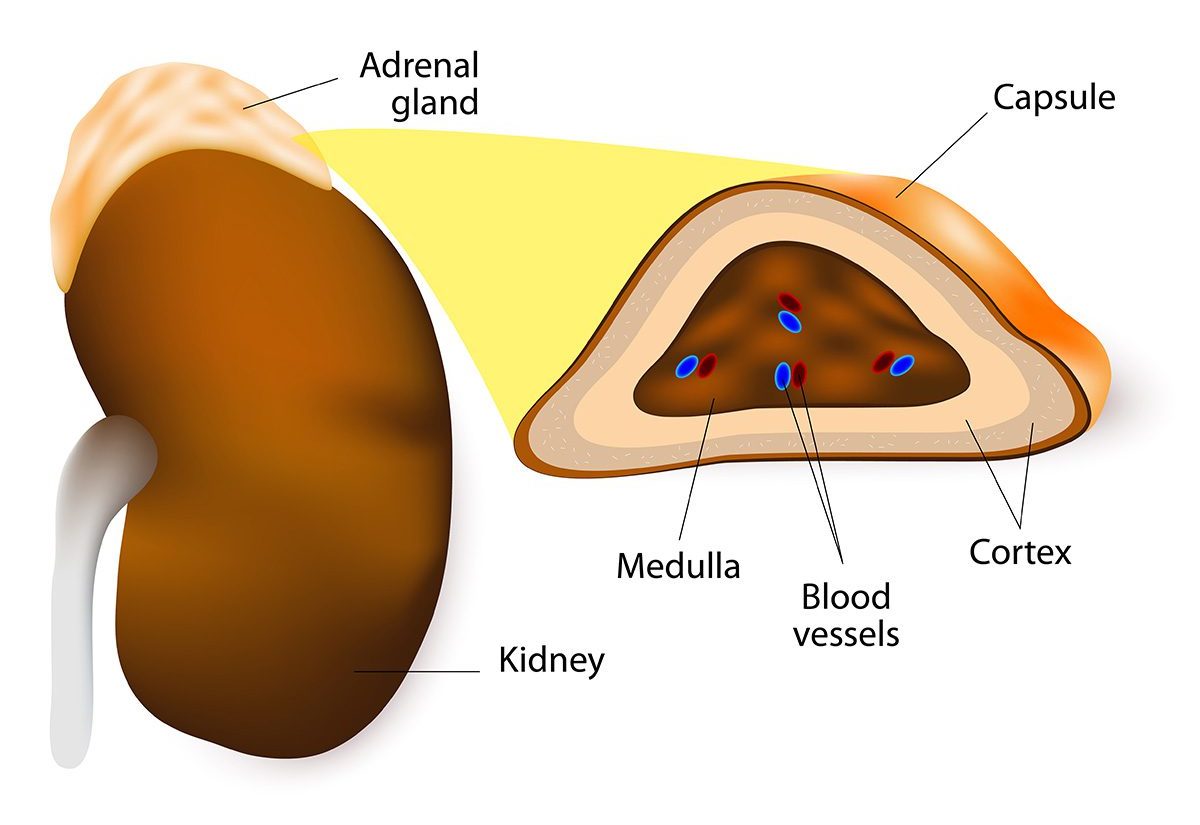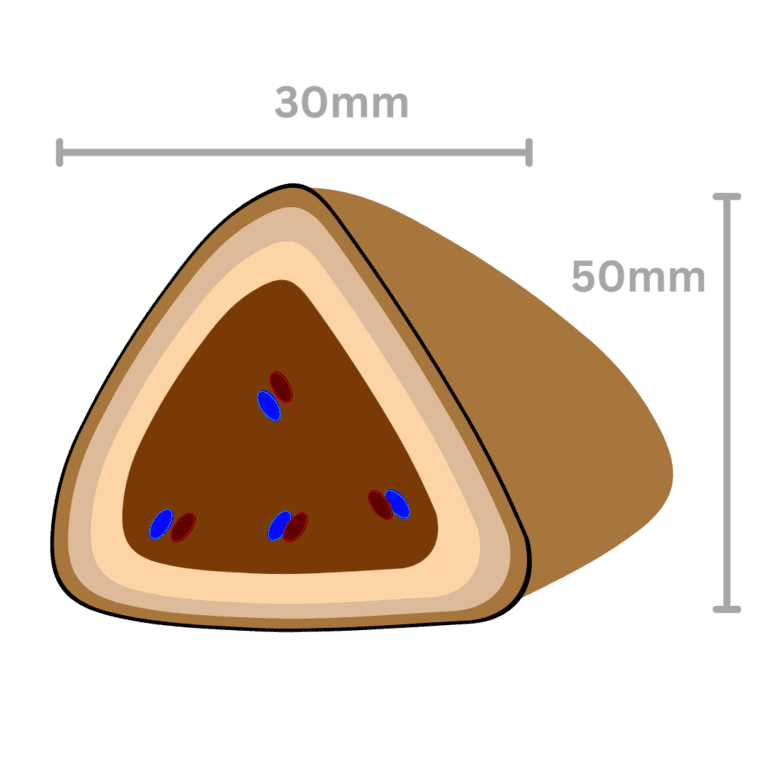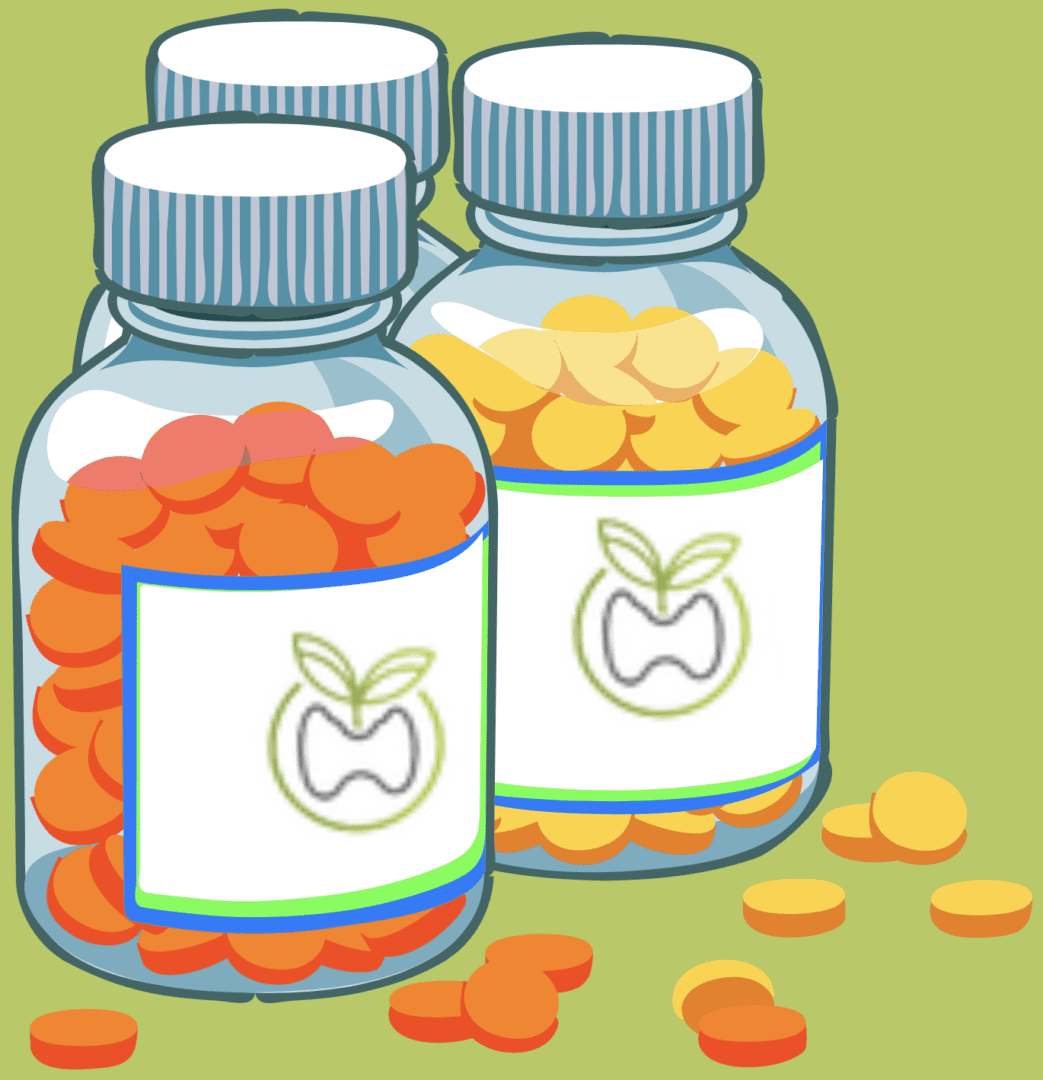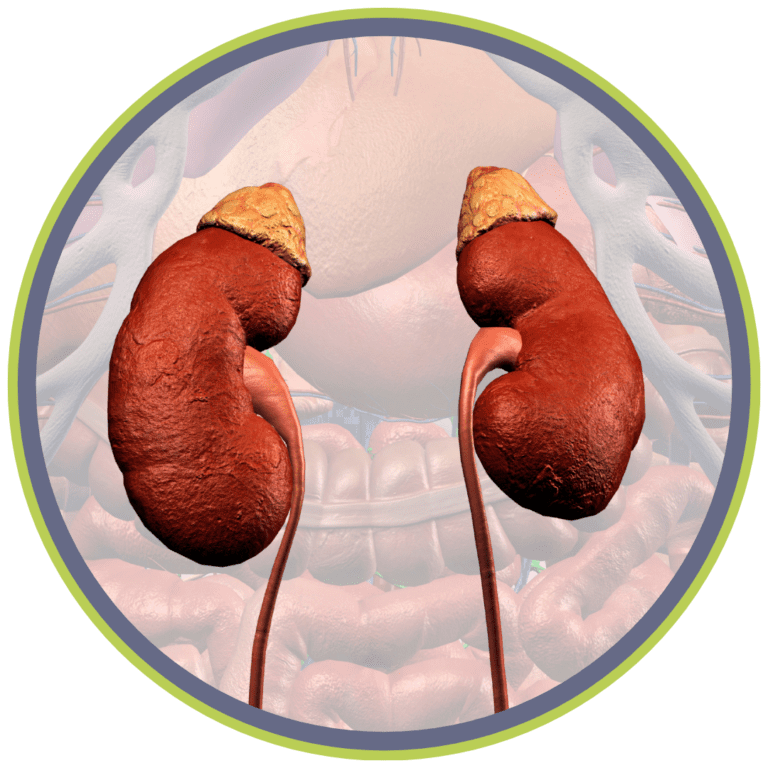
Factors influencing the adrenal gland activity:

Nutrients that contribute to adrenal hormone function:

The adrenal glands produce several hormones that are vital for bodily functions. These hormones can be categorized based on the part of the gland they come from – the adrenal cortex or the adrenal medulla.
Hormone secreted by the outer layer of the adrenal glands. It is the primary regulator of the water-electrolyte balance in the body. Electrolytes (such as sodium and potassium) are important in starting/stopping most metabolic processes in the body. Too many electrolytes can lead to high blood pressure, while too few can result in low blood pressure. Aldosterone maintains the perfect balance of electrolytes and water for optimal functioning.
(also known as adrenaline and noradrenaline) are two hormones that are produced by the innermost area of the adrenal gland, known as the adrenal medulla. These hormones are what are commonly called your ‘fight or flight’ hormones, providing sympathetic stimulation when secreted. These hormones are responsible for activating the central nervous system by controlling raising blood pressure, heart rate, and blood sugar for quick energy for the body.
Cortisol is a hormone produced by the outer layer of the adrenal gland, most commonly known as the ‘stress hormone’. Cortisol is an important factor in helping the body respond to stress by controlling blood pressure, blood sugar, metabolism and inflammation. Cortisol levels are often highest in the morning, ‘stressing’ us to wake up and start the day
Dehydroepiandrosterone is a hormone produced in the adrenal cortex. It serves as a crucial precursor to many important sex hormones, including estradiol, testosterone, and DHT (a more potent form of testosterone). DHEA levels peak in early adulthood and then naturally decline with age. While its exact functions are complex, DHEA is believed to play a role in energy production, immune system regulation, and mood.







Addison’s Disease
Addison's disease is a rare disorder where the adrenal glands produce insufficient amounts of crucial hormones, particularly cortisol and, often, aldosterone. It's typically caused by an autoimmune response damaging the adrenal glands, but can also result from infections or other underlying conditions. Early diagnosis and treatment, usually involving hormone replacement therapy, are vital for managing Addison's disease effectively.

Conn's Syndrome
A disorder of the adrenal glands due to a benign tumor, leading to excessive production of aldosterone, a hormone that regulates sodium and potassium.
Pheochromocytoma
A rare tumor that causes the adrenal glands to produce too much adrenaline, leading to high blood pressure, headaches, and heart palpitations.
Cushing's Disease
This occurs when a pituitary gland tumor releases too much ACTH, prompting the adrenal glands to produce extra cortisol, even though the tumor isn't in the adrenal glands themselves.
Cushing Syndrome
Cushing's Syndrome can be caused by an adrenal tumor which produces too much cortisol, or it can be due to other factors like tumors elsewhere that secrete ACTH or from taking high doses of corticosteroids for a long time.
Adrenal Dysfunction
This condition occurs when the adrenal glands, located above the kidneys, don't work properly. It can lead to either too much or too little production of hormones like cortisol or adrenaline.
Congenital Adrenal Hyperplasia
A group of inherited disorders affecting the adrenal glands, causing them to produce an imbalance of hormones, potentially affecting growth and sexual development.
1. Prioritize getting 7-9 hours of adequate sleep.
2. Limit caffeine intake, and never consume on an empty stomach.
3. Reduce stress with mindfulness practices such as meditation or yoga.
4. Exercise to stimulate blood flow in the body.



Remember, while these tips can support adrenal health, it's important to consult with a healthcare professional, especially when considering supplements or new health regimens.
Contact us and get started!

Acupuncture Session - $189.00
Acupuncture, Package of 4 - $636.00
Female Pellet Insertion Package - $518.00
Male Pellet Insertion Package - $744.00